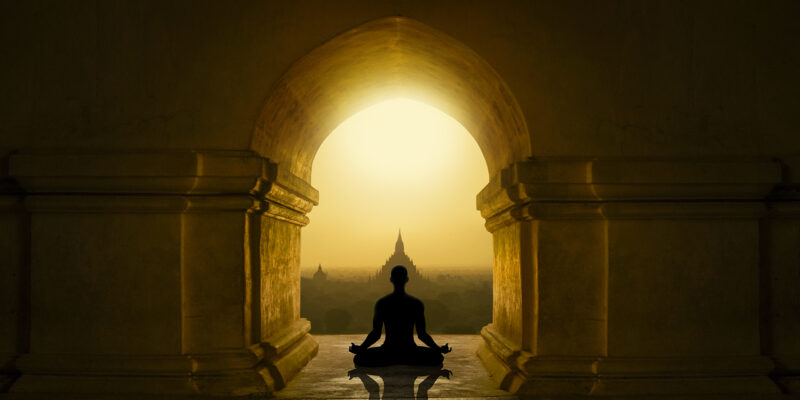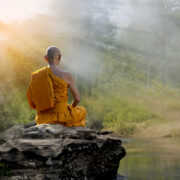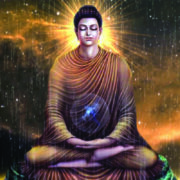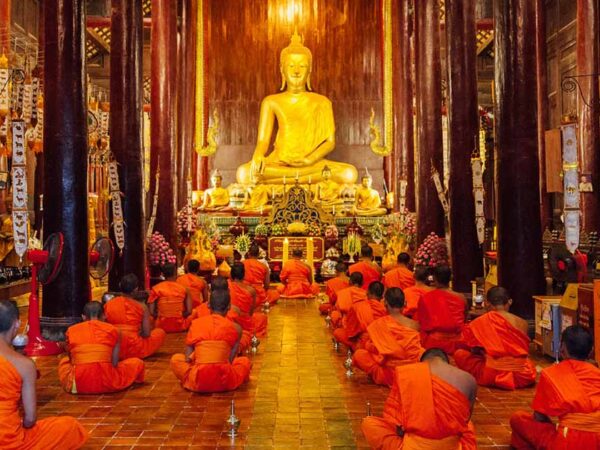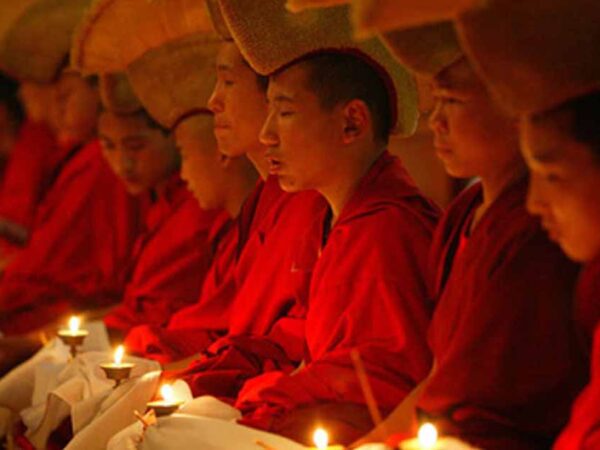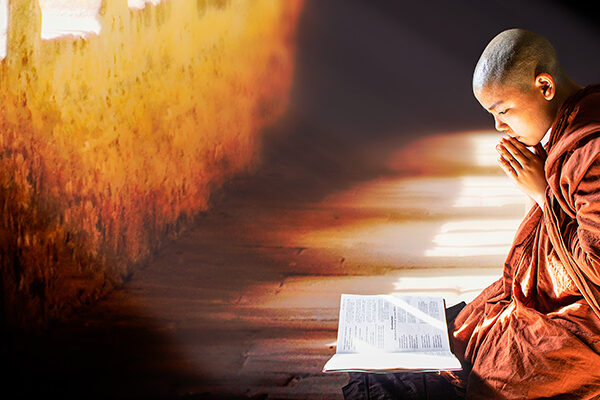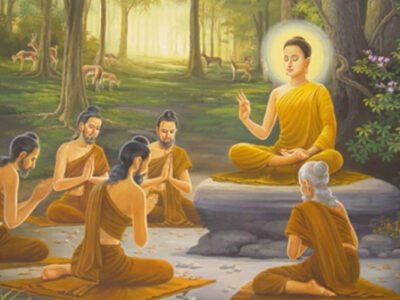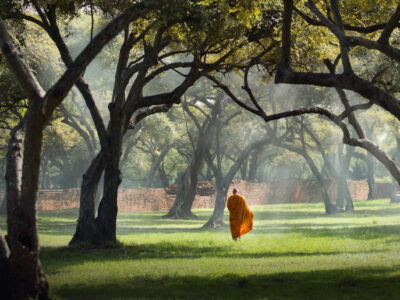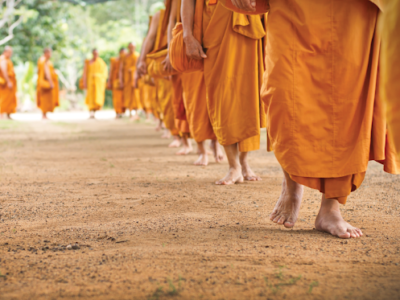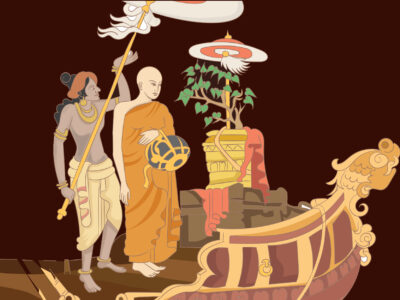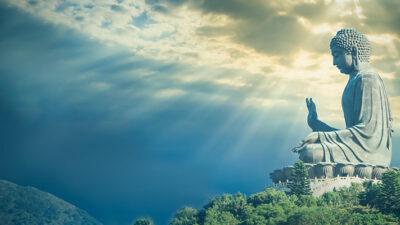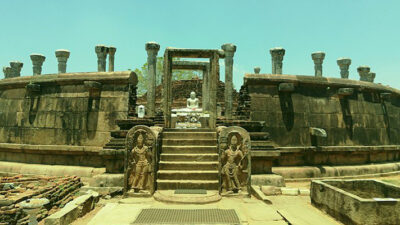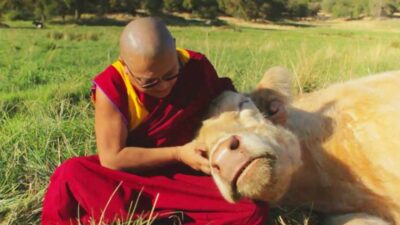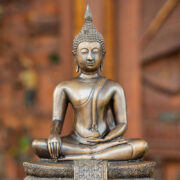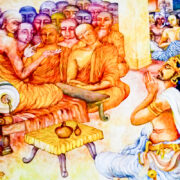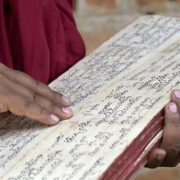Venerable Horovpatana Sattindriya
Buddhist Vihara, Victoria, Melbourne, Australia.
“A unique being an extraordinary man arises in this world for the benefit of the many for the happiness of the many, out of compassion for the world, for the good benefit, and happiness of gods and human beings. Who is this unique being? It is the Tathagata, the Exalted. Fuly Enlightened ne” By Anguttara Nikaya 1.13. p. 22
The Buddha performed his unparalleled and significant service for the benefit of all beings. During his forty five years ministry the Buddha went from place to place, door to door, palace to poor shelter and prince to beggar. Performing his peerless service, he treated all people alike, without any discrimination.
Eventhough the Buddha lived a busy and diligent life, he spent each and every minute of his days for the benefit of others. Accordingly, he planned his daily routine and his careful classification of time, he was able to perform his service indefatigably.
The great people of the world who served the global society fulfilled their duties according to their own time table. Even the sun and the moon appear on time and disappear likewise. Therefore, if someone wishes to practice a way of life following the Buddha’s teachings to their own personal life, they should arrange and plan their work under a certain timetable in order to achieve their aspirations.
The Buddha;s daily routine was divided into five parts.
The first was the forenoon session. According to tradition, early in the morning, the Buddha scrutinized the world with his divine eye to see whom he could help. If anyone was in need of spiritual assistance, he would go without invitation – often by food, and sometimes by air using his super-normal powers and reform that person by showing them right path.
As a custom and a general rule, he would go in search of the viscous and impure, whilst the pure and well-cultured people come in search of him.
For the second session, called the afternoon session, after the noon meal, the Buddha would take a seat in the monastery and disciples would assemble to listen to his exposition of the Dhamma. Some disciples would approach him to obtain suitable objects of mental culture (mediation). According to their character and frame of mind. Others would pay their due respects to the Buddha and then leave to their shelters to spend the afternoon. After the Buddha’s discourse or exhortation to his disciples, he himself would go to his private perfumed chamber to rest. If he so desired, he would lie on his right side and sleep for a short period with mindfulness.
In the evening the lay followers of the Buddha would gather to him to listen to the dhamma. The Buddha would gather to him to listen to the dhamma. The Buddha would deliver a sermon to the people at a level that varied according to their capacity for comprehension and would instruct them for about an hour.
To the average person, the Buddha would at first speak of generously, morally and heavenly bliss. To the more advanced, he would discourse, on the benefits of renunciation and the repercussions of sensual pleasures. Whilst to the highly advanced, the Buddha would set forth the four Noble Truths.
Following this was the third session, named the first session. This period of the night continued from six o’clock in the evening to ten o’clock at night, and was especially and completely reserved for guidance to the disciples. During this period, the disciples were free to approach the Buddha and have their doubt cleared and to question and catechize the Buddha on the entanglements and intricacies of the Dhamma. They would also obtain appropriate objects of mental culture and listen to the Dhammas.
The fourth session was the Middle Watch. During this period which extended from ten o’clock in the morning, divine beings such as Devas and Brahmas who are invisible to the physical eye would approach the Buddha to question him on the Dhamma and get their doubts cleared.
The fifth session namely the last Watch, was the small part of the morning extending from two o’clock to six o’clock, and was divided by the Buddha into four parts.
The Buddha would spend the first part in walking, meditation, pacing up and down which also served as a mild and gentle physical exercise. During the second part of the last Watch, from three o’clock to four o’clock in the morning. The Buddha would mindfully sleep on his right side, and in the third part (that as from four o’clock to five o’clock) he would enter the state of Enlightenment and experience Nibbanic bliss.
In the final hour of his day (that is from five o’clock to six o’clock in the morning). He would attain the ecstasy of great compassion and would radiate thoughts of loving kindness towards all beings to soften their hearts.
Thus, for the whole day, the Buddha was fully occupied with his spiritual duties. Unlike other beings, the Buddha slept for only one hour at night. In the morning at dawn, he prevaded thoughts of loving – kindness to the whole world and brought happiness to millions of living beings.
Leading a simple and humble life, seeking alms without inconveniencing any, wandering from place to place except in the rainy period of the year, the Buddha spent his life delivering his Teaching and performed his incomparable and unrivalled duties for the benefit and happiness of all living beings.
In this tight we should now consider ourselves. How do we arrange and plan our duties and work ? Generally we all prefer to spend our time freely, uselessly, pointlessly and unprofitably, and this may lead to disaster and tragedy here and hereafter. Thus, without letting it go, we should use our time wisely, seeking to curb the tendency of our minds to dwell only on pleasurable subjects.
Negligence of time is laziness of person. All great philosophers, thinkers, social reformers and leaders both who have left the world or are alive in the present, diligently served and serve the greater mass of humanity.
Some people postpone the duties which they ought to do for their children, parents and the rest of their family members, but we ought to contemplate our short lifespan.
Since “life is uncertain, but death is certain”. Then concerning this nature phenomena of existence, we should perform all our duties for the benefit of others and under a certain time table. Indeed, as the Buddha once said; “Like a border city, guarded within and without, so guard yourself. Do not let slip this opportunity, for they who let slip the opportunity grieve when born in a woeful state”.
(Dhammapada 315)
(Kind Courtesy – The Maha Bodhi
January – March – 1997)

